Moon Sports > Basketball > The winner of Lakers sales of & Loser: Pelinka faces the ultimate test this summer, and the Celtics financial resources are slightly inferior
The winner of Lakers sales of & Loser: Pelinka faces the ultimate test this summer, and the Celtics financial resources are slightly inferior
The most famous family in basketball is about to end. After 46 years of operation and winning 11 championship trophys, the Buss family sold most of the Lakers' equity to Dodgers owner Mark Walter at a valuation of $10 billion. This is one of the most amazing deals in sports history, both because of its sky-high price and the people involved.
The Bass family has never been a hand-off owner. Jerry Bass is crucial to the Lakers' operations, and HBO even filmed a TV series specifically for him. Many of his children not only hold important positions in the Lakers' business field, but also in the basketball operations department; since his father's death in 2013, Jenny Buss has always served as the team's board of directors. Every big thing that happened to the Lakers has been closely linked to the family in some profound way in the past half century.
It is reported that Jenny Buss will retain the position of the team's board of directors, but the specific scope of authority is still unclear. It is hard to imagine that the new boss Walter will spend $10 billion to acquire a team that he cannot control. The largest team deal in NBA history will profoundly change the sports landscape in Los Angeles, with CBS Sports' Sam Quinn analyzing potential winners and losers.
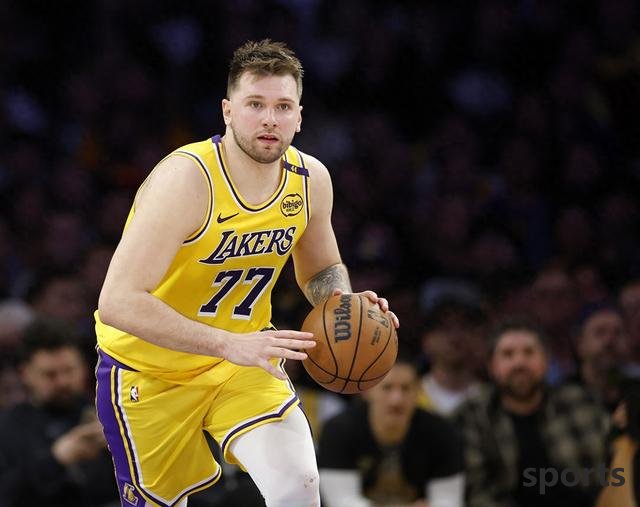
Winner: Luca Doncic
We are always used to attribute the success or failure of the team to superstars, but more often these stars are actually subject to management. Magic Johnson and Kobe Bryant won 10 championships for the Bass family, and most of these championship lines were created by Jerry West, the greatest general manager in NBA history. The 11th championship is also the last championship in the Bass era. When the Cavaliers lacked West-style helmsman, James had to turn to the Heat and Pat Riley to join forces to start the road to winning the championship.
Look at the management of Doncic when he played for the Mavericks. Regardless of how stupid the decision to trade him was: when Nick Harrison took over the team in 2021, the Mavericks originally had Porzingis and Brunson to assist Doncic, but in the end they almost lost these two generals in vain. At that time, Doncic's peak period was obviously difficult to get proper care.
Now when Doncic enters its theoretical peak, Walter will shape the Lakers. Although he will not directly participate in basketball decisions, his record in charge of the Dodgers is enough to illustrate the problem: he has never missed the playoffs since his first season of acquiring the team, entered the World Championships four times and won the championship twice, and his regular season winning rate has always remained above 60%. Walter will surely equip the Lakers with the right leadership team. Although this is not a guarantee of winning the championship, it is undoubtedly a positive signal for Doncic's vision of the Lakers' championship.
Loser: Lakers' competitors
say that the Lakers' stinginess in the Bass era may not be fair enough. According to data from open-air stands reporter Eric Pincus, the Lakers' net spending has ranked seventh in the league since 2017. But... this is the Lakers. Their money-printing business income and the largest local TV broadcast contract in the league should have made it difficult for any team to surpass them in investment.
However, reality is exactly the opposite. Despite being willing to pay a luxury tax, the Lakers are more keen on chasing superstars than strengthening puzzles. The release of Caruso in 2021 is a typical case: there is no tactical price to keep him, only real money is required, but management chose to save money. This kind of careful calculation is more reflected outside the court: the Lakers have never been known for their deep management structure or logistical support, and the value of these hidden investments is difficult to quantify, but it is crucial.
To put it in an inappropriate way, the Lakers have always been engaged in "family-style employment". Among the five core executives during the Bass family's power: Bill Sharman is the former Lakers head coach, Jerry West, Mickey Kupchek and Magic Johnson are both Lakers' celebrities, and Robert Pelinka is Kobe's agent. Most of the team's head coaches are also of Lakers. Members of the Bass family have controlled multiple key basketball operations positions for many years, and the Lambis's influence in management is well known. Some of these decisions are quite successful, but it must be admitted that this operating model is by no means the optimal solution. The team should have adopted talents, but the Lakers are plotting as prisons.
Even so, the Lakers still put huge pressure on other teams, after all... this is the Lakers. The players yearn for Los Angeles and are eager to wear purple and gold robe. Now that the Lakers will operate like a standard big market team rather than a family business, this is not good news for other teams in the league, they can no longer expect the Lakers to trip themselves up.
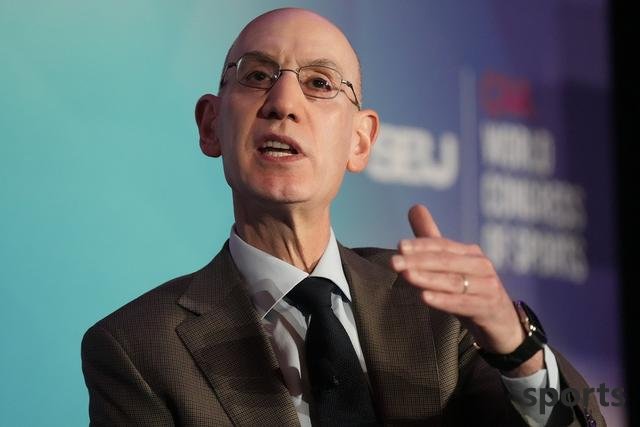
Winner: It is an open secret that the owners of other NBA teams will be expanding the NBA soon. One of the biggest rumors this season is that after the Celtics complete the transaction and reset the team's valuation benchmark, the league will launch a military expansion plan. The Celtics eventually sold for $6 billion, and since then, NBA president Adam Xiao Hua began to mention the topic of military expansion to the media more frequently. If it were in the past, it would be considered a huge success for the NBA to sell the quota of expanding the army at a unit price of US$5-6 billion.
and $10 billion? This completely reshapes the market valuation system. Of course, other teams will not suddenly soar to this price, after all, this is the Lakers. But such a shocking deal will have a chain reaction: when Ballmer acquired the Clippers for 2 billion in 2014, the transaction price of NBA teams never even exceeded the $1 billion mark. After 2016, all teams have changed hands at a valuation of at least US$1 billion, and many transactions have far exceeded this number. Although new teams about to enter Las Vegas and Seattle (assumed) have difficulty reaching a valuation of 10 billion, the Lakers' transactions have raised their value as a whole.
The essence of the military expansion mechanism is that the new boss purchases "virtual teams" from the league. The bosses of the current 30 teams will expand their military revenue evenly, which means that for every extra $1 sold, each boss will be able to earn 3 cents more. When this number was amplified to the order of hundreds of millions or even billions of dollars, the Bass family not only made themselves profitable, but also created huge wealth for the bosses of the entire league..
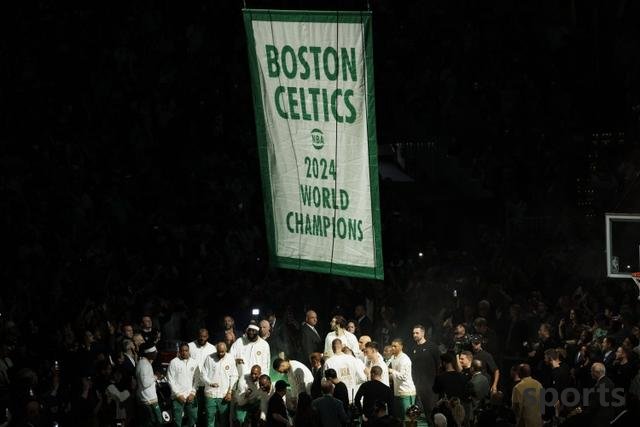
Loser: Celtics
Although the Celtics just set the second highest team trading record in history, the transaction price is definitely not low, as mentioned above, the Lakers' trading has completely reshaped the market. If people of the world had known that the Lakers could sell 10 billion, it would be hard to imagine that the transaction price of the Celtics would not be close to at least 7 billion. From this perspective, the Grossbeck Consortium did suffer a small loss.
And the deeper problem is... this is the greatest hostile confrontation in basketball history. A wonderful showdown requires a stage that is evenly matched, and the trading market has just shown that the Lakers' valuation is far beyond the Celtics. Will this affect the team's performance on the court? Of course not. But learning that he is destined to be the "second financial resources" in this competitive relationship is undoubtedly a heavy blow to the Celtics' pride.
If there is anything to be comforted, Boston should have been accustomed to this. They are also in financial weakness for a long time in front of the New York Yankees, the biggest rival in the field of baseball. Although the Red Sox has twice as many titles as Yankees this century, the operation of reducing spending in recent years has sparked strong dissatisfaction among fans. It is expected that the Celtics will also control their spending soon, but it is mainly due to avoiding the operational considerations of the second rich line and has nothing to do with stinginess. Since the Lakers are also subject to these rules, the sting may be slightly lighter. After all, this is just a contest about dignity.
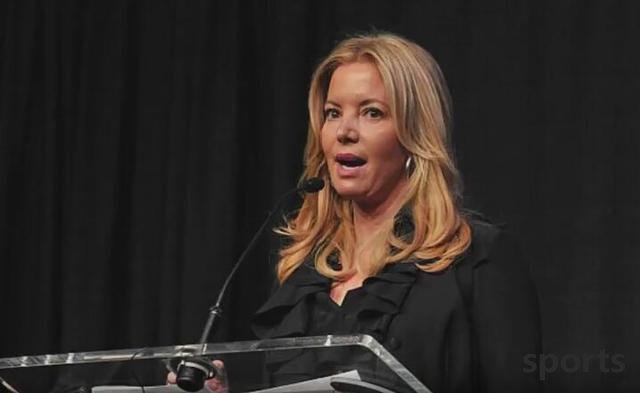
Winner: The Bass Family
Although the Bass Family has successfully held the Lakers for many years, it is necessary to recognize one fact: their financial resources are far less than those of super rich people like Ballmer. Its wealth comes almost entirely from the Lakers, not other business empires. Of course, they are definitely not poor, but in terms of cash reserves, they are indeed not as financially as a typical big market team boss.
The Bass family holds shares in the Lakers through a trust fund, and each of the six children has one-sixth of the interests. Before the sale, the trust held 66% of the team's shares. At a valuation of $10 billion, the transaction will bring $6.6 billion in profits to the family, with each child being able to share $1.1 billion. Although it is not clear what proportion of Walter's acquisition is (only known that he has acquired a majority of the equity), the team's board representatives must come from a shareholder group that holds at least 15% of the shares under the NBA regulations. Considering that Jenny will continue to hold this position, the Bass family is likely to retain this share. Regardless of the final distribution ratio, cashing out most of the equity has enabled the six Bath family children to achieve a substantial leap in wealth.
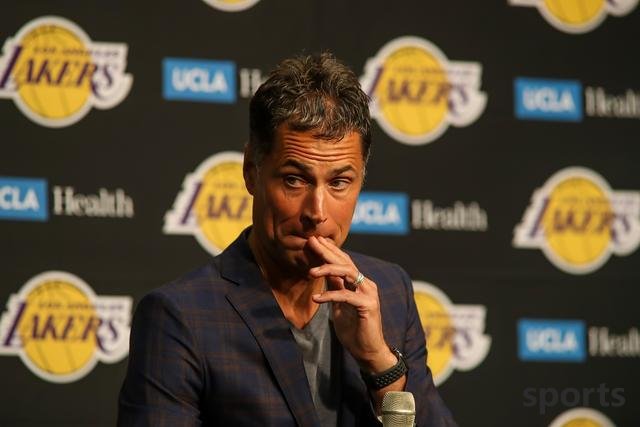
Loser: Robert Pelinka
The Lakers' future power structure remains variable. Although Jenny Buss will continue to serve as the board representative, according to ESPN reporter Ramona Shelburne, she will "serve for at least a few more years", but the reality is that Walter will obviously not be willing to be a bystander after spending billions of dollars. If he decides to install his own people, it is hard to imagine that he will encounter resistance.
After acquiring the Dodgers that year, Walter immediately looked for the best candidate for the baseball operations department, and finally dug up Andrew Friedman from the Tampa Bay Rays to take charge of the overall situation. Will he behave the Lakers in the same way now? Time will give the answer. But it is worth noting that a well-known manager with a deep connection with Los Angeles is currently serving as a commentator on ESPN. Bob Myers not only created the Warriors dynasty, but also graduated from UCLA. It is hard not to think that he might become the Lakers version of Friedman. What situation will Pelinka face? Now he can keep his job temporarily, and the transaction from Doncic may have won him a certain term of guarantee. But it must be noted that during the turbulent times of the Lakers in recent years, his personal relationship with Jenny Buss and the connections established through Kobe and the Lakers were once his most solid amulet. Don't forget that when Pelinka fired three head coaches and appointed his successors, he never suffered substantial doubts about his own management ability; even if James put pressure on him, he was the one who finally decided to make the Westbrook deal and gave up Caruso, and these decisions were far from uncontroversial.
There may not be any changes in the short term, but this offseason will become Pelinka's ultimate test: if he can build a championship-level lineup around Doncic and James, he will most likely be able to sit firmly on Diaoyutai; but if the record in the new season is bleak and his position in the team will be unstable in a flash.
Original text: Sam Quinn
Compiled by: Li Taibai
Free 7MRelated Posts
TA selected the top ten wonderful moments of the 21st century: James ranked first in the tiebreaker with 81%; Kobe ranked second with 81
BasketballNovember 22nd, the American media TheAthletic selected the top ten NBA moments since the 21st century. Among them, James ranked first with his biggest shot in G7 of the 2016 Finals, Kobe's 81 points ranked second, and Ray Allen's corner thre...
moreThe Mavericks are preparing for a major overhaul. The player supermarket has opened, and many main players have been put on the shelves. They will rebuild around the No. 1 pick.
BasketballThe Dallas Mavericks have had a devastating start to the season. In fact, at the beginning of the season, the outside world was relatively optimistic about the Mavericks. With the addition of the No. 1 pick, and no injuries to the team, they were al...
moreCollins started 6 games, averaging 9.3 points, 4.5 rebounds and 0 assists, shooting 40.7%% from the field and 13.3% from three-point range.
BasketballHupu News November 21st NBA regular season, the Clippers lost to the Magic 101-129 and suffered a three-game losing streak. In this game, Clippers player John Collins made 4 of 8 shots, 0 of 1 three-pointers, scored 9 points, 4 rebounds, 1 steal, 1...
more
Hot Posts
- Best Rookie? No. 4 overall pick Knipur, how amazing is he?
- Carter Jr.: We know what Blake is capable of and the team is stronger when he stays aggressive
- Seth Curry - Brothers on the same stage, Seth fights for the championship
- Anthony is officially inducted into the Hall of Fame! Maybe he only retired from the Knicks No. 7, but the Nuggets No. 15 cannot retire?
- NBA offseason turmoil: The giant chess game behind a billion-dollar contract
- Scott: Tatum seems to die when his Achilles tendon breaks, but Kobe will never do this
- American News: The Cavaliers don t need to trade core players such as Garland. They still have great potential if they are not the Lakers.
- Successfully played the role of the surprise! The Pacers forward performs amazingly in overtime?
- Questioning the Mavericks to Becoming the Mavericks! Famous reporter: Antetokounmpo is on his way to the Lakers
- Homegren burst! Thunder 149-106 Nuggets, Alexander watches 34+4+7, Harten 14+8+5
Recent Posts
-
Celtics official: Halloween revenge victory kicks off NBA Cup journey
-
Game 6 of the CBA Finals: Beijing faces Guangsha at home, Beijing has no choice but to retreat
-
Shuhao talked about thugs and hitting Lao Zhan’s wrist: The muscles were too strong and it felt like they hit a big stone
-
Kaguya talks about the big win: He protected the ball very well and completed defensive steals, and got a fast break counterattack opportunity.
-
He also disagreed with letting go! The Nuggets have a firm attitude and asked Jokic to be a substitute!
-
It s really worse than another game! How should the Nuggets arrange the playing time of the forward general next?
-
Questioning the Mavericks to Becoming the Mavericks! Famous reporter: Antetokounmpo is on his way to the Lakers
-
NBA playoff situation! Two hottest players in the East fell, the Thunder broke the curse, Curry s injury updated
-
The end of the Bass family era: Looking back at the glorious history of the Lakers from Showtime era to the 10 billion-dollar wealthy family
-
2025 NBA playoffs live broadcast: Knicks vs Celtics G5 playback (Chinese commentary) full version online video